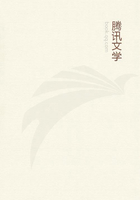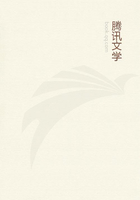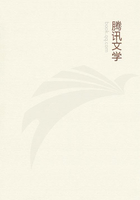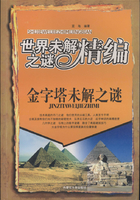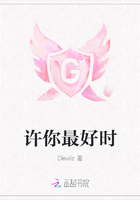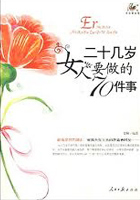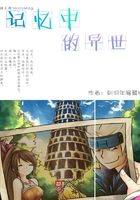There he remained till Midsummer, And looked both pale and wan;Then Barleycorn he got a beard, And so became a man.
Then they sent men with scythes so sharp, To cut him off at knee;And then poor little Barleycorn, They served him barbarously.
Then they sent men with pitchforks strong To pierce him through the heart;And like a dreadful tragedy, They bound him to a cart.
And then they brought him to a barn, A prisoner to endure;And so they fetched him out again, And laid him on the floor.
Then they set men with holly clubs, To beat the flesh from his bones;But the miller he served him worse than that, For he ground him betwixt two stones.
O! Barleycorn is the choicest grain That ever was sown on land;It will do more than any grain, By the turning of your hand.
It will make a boy into a man, And a man into an ass;It will change your gold into silver, And your silver into brass.
It will make the huntsman hunt the fox, That never wound his horn;It will bring the tinker to the stocks, That people may him scorn.
It will put sack into a glass, And claret in the can;And it will cause a man to drink Till he neither can go nor stand.
Ballad: BLOW THE WINDS, I-HO!
[THIS Northumbrian ballad is of great antiquity, and bears considerable resemblance to THE BAFFLED KNIGHT; OR, LADY'S POLICY, inserted in Percy's RELIQUES. It is not in any popular collection.
In the broadside from which it is here printed, the title and chorus are given, BLOW THE WINDS, I-O, a form common to many ballads and songs, but only to those of great antiquity. Chappell, in his POPULAR MUSIC, has an example in a song as old as 1698:-'Here's a health to jolly Bacchus, I-ho! I-ho! I-ho!'
and in another well-known old catch the same form appears:-'A pye sat on a pear-tree, I-ho, I-ho, I-ho.'
'Io!' or, as we find it given in these lyrics, 'I-ho!' was an ancient form of acclamation or triumph on joyful occasions and anniversaries. It is common, with slight variations, to different languages. In the Gothic, for example, Iola signifies to make merry. It has been supposed by some etymologists that the word 'yule' is a corruption of 'Io!']
THERE was a shepherd's son, He kept sheep on yonder hill;He laid his pipe and his crook aside, And there he slept his fill.
And blow the winds, I-ho!
Sing, blow the winds, I-ho!
Clear away the morning dew, And blow the winds, I-ho!
He looked east, and he looked west, He took another look, And there he spied a lady gay, Was dipping in a brook.
She said, 'Sir, don't touch my mantle, Come, let my clothes alone;I will give you as much money As you can carry home.'
'I will not touch your mantle, I'll let your clothes alone;I'll take you out of the water clear, My dear, to be my own.'
He did not touch her mantle, He let her clothes alone;But he took her from the clear water, And all to be his own.
He set her on a milk-white steed, Himself upon another;And there they rode along the road, Like sister, and like brother.
And as they rode along the road, He spied some cocks of hay;'Yonder,' he says, 'is a lovely place For men and maids to play!'
And when they came to her father's gate, She pulled at a ring;And ready was the proud porter For to let the lady in.
And when the gates were open, This lady jumped in;She says, 'You are a fool without, And I'm a maid within.
'Good morrow to you, modest boy, I thank you for your care;If you had been what you should have been, I would not have left you there.
'There is a horse in my father's stable, He stands beyond the thorn;He shakes his head above the trough, But dares not prie the corn.
'There is a bird in my father's flock, A double comb he wears;He flaps his wings, and crows full loud, But a capon's crest he bears.
'There is a flower in my father's garden, They call it marygold;The fool that will not when he may, He shall not when he wold.'
Said the shepherd's son, as he doft his shoon, 'My feet they shall run bare, And if ever I meet another maid, I rede that maid beware.'
Ballad: THE BEAUTIFUL LADY OF KENT; OR, THE SEAMAN OF DOVER.
[WE have met with two copies of this genuine English ballad; the older one is without printer's name, but from the appearance of the type and the paper, it must have been published about the middle of the last century. It is certainly not one of the original impressions, for the other copy, though of recent date, has evidently been taken from some still older and better edition. In the modern broadside the ballad is in four parts, whereas, in our older one, there is no such expressed division, but a word at the commencement of each part is printed in capital letters.]
PART I.
A SEAMAN of Dover, whose excellent parts, For wisdom and learning, had conquered the hearts Of many young damsels, of beauty so bright, Of him this new ditty in brief I shall write;And show of his turnings, and windings of fate, His passions and sorrows, so many and great:
And how he was blessed with true love at last, When all the rough storms of his troubles were past.
Now, to be brief, I shall tell you the truth:
A beautiful lady, whose name it was Ruth, A squire's young daughter, near Sandwich, in Kent, Proves all his heart's treasure, his joy and content.
Unknown to their parents in private they meet, Where many love lessons they'd often repeat, With kisses, and many embraces likewise, She granted him love, and thus gained the prize.
She said, 'I consent to be thy sweet bride, Whatever becomes of my fortune,' she cried.
'The frowns of my father I never will fear, But freely will go through the world with my dear.'
A jewel he gave her, in token of love, And vowed, by the sacred powers above, To wed the next morning; but they were betrayed, And all by the means of a treacherous maid.
She told her parents that they were agreed:
With that they fell into a passion with speed, And said, ere a seaman their daughter should have, They rather would follow her corpse to the grave.
The lady was straight to her chamber confined, Here long she continued in sorrow of mind, And so did her love, for the loss of his dear, -No sorrow was ever so sharp and severe.

